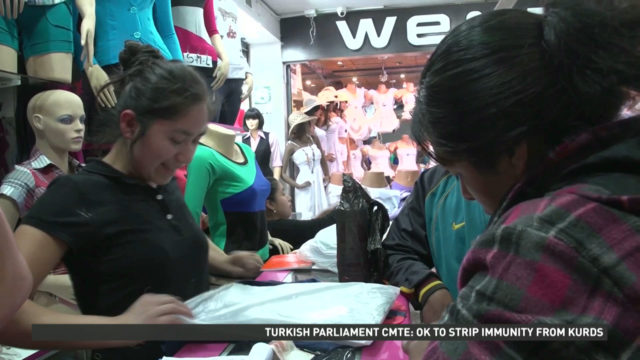Another Latin American country has hiked its minimum wage. Peru’s outgoing president raised the monthly pay to more than $300 a month, pushing it ahead of its neighboring economies like Colombia and Brazil.
CCTV America’s Dan Collyns reports from Lima.

Signing off on a 13 percent minimum wage boost, outgoing president Ollanta Humala left Peru with a parting gift.
Popular with low-paid workers, the gesture stole the thunder from candidates vying for Peru’s presidency in elections next month. They had promised to raise the wage as part of their campaigns. But workers like 22-year Joey Paico said he had Humala to thank.
“The cost of living has gone up, the price of chicken, the price of rice, all the daily necessities so I’m grateful to Humala for the thirty dollars more, only he did it at the end of his government, he could have done it earlier!” Paico said.
But in Peru’s largely unregulated economy how many people actually benefit? Not much more than one percent of working Peruvians, around 300,000 people,says human resources expert, Ricardo Martinez.
“The vast majority of companies in this country are very small, more or less family businesses, only one percent are large or medium-sized businesses. Obviously in the small and micro businesses 99% percent don’t pay the minimum wage,” Martinez said.
So with around three-quarters of working Peruvians not paying tax but also not getting benefits, does raising the minimum wage matter?
“The impact in economic terms is very little. In political terms, it’s clearly important, that’s why this government has done it just weeks before they leave office,” Martinez said.
As Peru has grown economically, poverty has been slashed by half in the last decade. But despite the growth of other industries like agro-exports, Peru’s economy still relies on mining dividends.
Most people in Peru work in small, often family businesses, like the shops and stalls in this computer plaza. The common aspiration is to be your own boss rather than being a cog in a much bigger wheel. It will take more than a raise in the minimum wage to attract workers to join the formal sector.
 CGTN America
CGTN America

